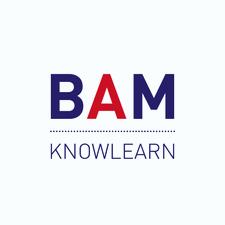
From the 39 accepted submission this year, 23 in total were presented at the Conference. This included 14 full papers and 9 developmental papers of which 5 presented virtually. This was significantly down from 48 papers presented at BAM 2024, including 29 in-person and 19 virtual session papers. Although Conference attendance was stronger last year, the SIG attracted interesting work from both junior and more established researchers from universities across the UK and globally (Japan, Brazil, China, Nigeria, India, France and Italy).
The call for papers was on the theme of border crossing and disrupted institutional contexts, extended to both management and organisational knowledge focused, as well as management education and pedagogy focused scholarship. Selected highlights from the parallel sessions follow:
- Selected for best developmental paper and responding to the Conference theme on boundary crossing, “Theorising interdisciplinarity through a practice and performativity lens” (Ryan Nolan, the University of Exeter) explored the concepts “landscape of practice” and “performativity” in the context of how universities practice interdisciplinarity. The paper “Breaking boundaries in AI-driven learning” (Khanh Hoang, Shenzhen University China) was selected for best full paper for the SIG 2025, exploring “employee unlearning” in response to leaders’ attitudes towards an AI integrated workplace.
- A number of papers which responded to the disrupted institutional context theme included work on the effectiveness of automated AI support systems for postgraduate international students (University of East London), taking a risk management approach to quality assurance for an omnichannel HE strategy (Aston University), and tensions in HE research-focused communities of practice (Queen’s University Belfast).
- In relation to management education research, the paper “Navigating the new pedagogical landscape: Integrating cognitive-AI frameworks with LLMs in education” (Colin Fu, UCL School of Management) proposed a comprehensive 5-stage framework for the HE teaching environment. Reflexively building on Bloom’s taxonomy, the framework is a practical response to the challenges which AI tools pose for learning, instead showing how AI can be integrated with staged learning through assessment design, enabling students to be critical, solve problems, and think ethically. The paper complemented research into designing non-digital methods stimulating critical thinking, self-reflection, and empathy in HE settings, in papers presented by Elizabeth Houldsworth, Henley Business School and Kiran Kandade, Brunel Business School.
- With respect to knowledge research in a workplace context, the paper “What lies beyond scarcity? Linking perception of politics, workplace incivility and conflict to knowledge hiding in the IT industry” (Sumagna Bhowmick, Indian Institute of Management Sirmaur) presented a quantitative study focusing on the mediating role of conflict and incivility on “knowledge hiding”. Other knowledge-focused papers discussed research on “knowledge sharing” in online communities (Japan) and “informal online learning” for highly-skilled gig workers (China).
Unfortunately the scheduled workshop on co-creating the curriculum with students did not take place as the presenter did not attend.
Thank you to everyone who attended and shared their work, ideas and feedback.
Finally, we look forward to receiving submissions for the 40th BAM Conference 2026 which will be hosted by Royal Holloway University of London. The theme is Thriving Together: Impact, Innovation, and Inclusion in Business and Management and a detailed call for papers for our SIG will follow soon. Stay tuned!
SIG Conference Co-Chairs: Dr Bogdanova and Dr Grishikashvili
